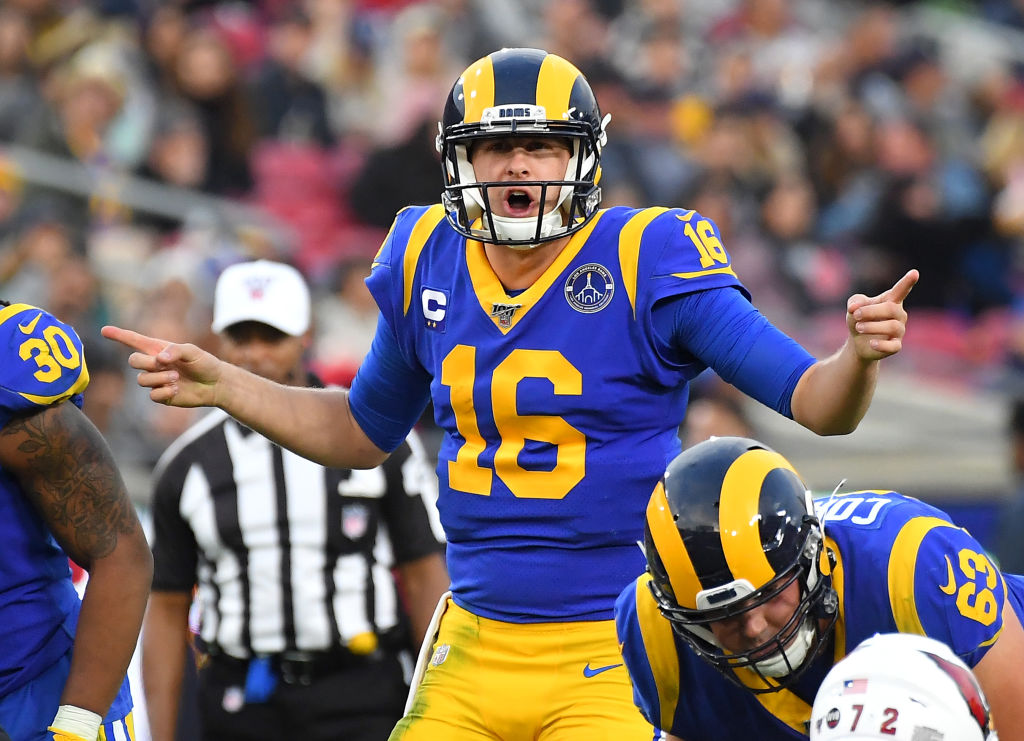NFL
How Did the Los Angeles Rams Get Their Name?

In the NFL, some team names make perfect sense. The Green Bay Packers, for example, trace their past back to a meatpacking company. In Western Pennsylvania, it's only fitting that the region's primary industry inspired the Pittsburgh Steelers. Other names, though, like the Los Angeles Rams, are a little less obvious.
Was someone in the team's front office a fan of farm animals? Did they think that ‘horned' helmet would look cool and simply work backward? It turns out the Los Angeles Rams got their name from a piece of college football history.
The Rams' life before Los Angeles
While most football fans might know that the Rams spent time in Los Angeles before moving to St. Louis, the franchise's life didn't begin in California. Things actually started out in Cleveland during the early days of professional football.
The Cleveland Rams were born in 1936 and originally played their games in the American Football League; after the league went belly-up, however, they joined the NFL.
While life wasn't initially easy in the NFL, the Rams started to improve. In 1945, the went 9-1 during the regular season, before capping off the campaign with a 15-14 victory over the Washington Redskins in the championship game. That would be the team's last game in Cleveland, as they relocated to Los Angeles during the offseason.
Playing in Los Angeles and St. Louis
After moving to sunny California, the Los Angeles Rams continued their success. The club made it to four championship games in the 1950s, winning one title and playing “an exciting, glamorous brand of football.” Things would tail off for a while, but the club bounced back in the 1970s; trouble, however, was looming just beyond the horizon.
In the early 1990s, the Rams had become one of the league's worst teams; they played dull football, and, unsurprisingly, fans stopped coming to Anaheim Stadium. Owner Georgia Frontiere, however, had a ‘solution.' She moved the team to St. Louis.
While the move didn't immediately pay dividends, everything changed in 1999. After an injury to Trent Green, an unknown Kurt Warner stepped under center; he turned into a star, leading the explosive “Greatest Show on Turf” all the way to a Super Bowl title.
While Warner and the Rams would make a few more postseason appearances—they even made it back to another Super Bowl, but lost to the emerging New England Patriots—thing eventually followed the same path they did in Los Angeles. As the team's on-field performances dipped, attendance dwindled, and the ownership—this time, Stan Kronke—took the easy way out: relocation.
How did the Los Angles Rams get their name?
While there's been plenty of change in franchise history, the Los Angeles Rams' name has remained a constant. But why did they take on that moniker?
During the franchise's days in Cleveland, Damon “Buzz” Wetzel served as general manager. His favorite college team was the Fordham Rams—home of Vince Lombardi and the Seven Blocks of Granite—so the professional club adopted the same moniker. It didn't hurt that “Rams” was short, snappy, and fit perfectly in a newspaper headline.
The NFL and the world are quite different than they were in 1936. The Rams, however, are still going by the same name.











